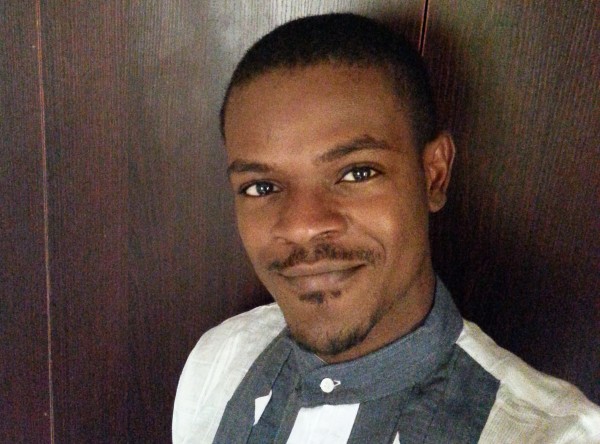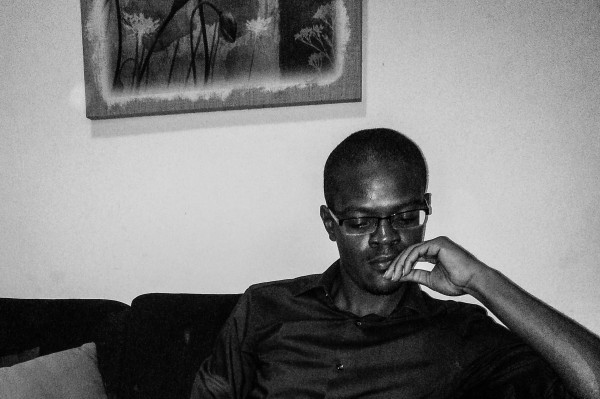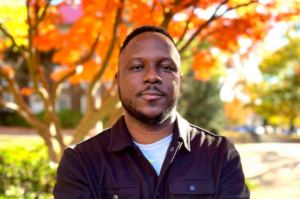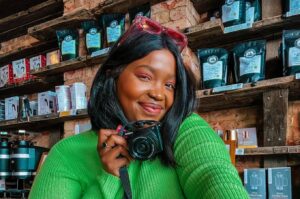Eugene Odogwu is the author of In the Shadow of Iyanibi, [read here] the fantasy story series we launched last week. Since you all loved the story, we thought it’d be nice to formally introduce Odogwu to you.
In this interview, he dishes on his passion for African fantasy.
Enjoy!

Which books or authors influenced your interest in fantasy?
I must have read almost a hundred fantasy books by now. The titles are all a blur in my head now. But if I had to single out one or two works, I would say Shakespeare’s A Midsummer Night’s Dream was a great influence, Ovid’s The Metamorphoses even more so. I’d go as far as to say Metamorphoses was the tipping point.
How did you go from Shakespeare to African fantasy?
It must seem like a massive leap, but it really isn’t. Fantasy has a common denominator—imagination. Imagination of the awe inspiring, the amazing, the magical, the otherworldly. Look closely enough and you’ll see that at its core, it’s all the same, just with different names. Magic or Juju, what’s the difference? All I did was bring my writing closer to home.
Tell us a bit about your new story series. Where did the idea for “In the Shadow of Iyanibi” come from?
I once heard a Yoruba tale about a tree that demanded the first child of a woman who’d come to it for favors. The idea of a malevolent and effeminate tree-creature seemed so fascinating. I had to explore it. As for Iyanibi, it’s a tribute to the thousands of dark and “evil” forests in all forms of literature, folklores and fairytales.
There are many young writers today who want to become like Chimamanda Adichie—they want to write the next great African realist novel. You seem to be striking out on a different path. Why?
It might be easier for certain people to relate to stories that represent reality, for me it’s the reverse. I already live in the real world. If a book is a portal then why not be transported to a magnificent or an amazing or terrifying or downright trippy and creepy world? Why remain grounded when I can write myself wings and explore beyond the boundaries of realism. I write African fantasy because I believe there’re others like me seeking these portals. I can only hope they enjoy worlds I give them access to.
The great Nigerian fantasist—D. O. Fagunwa—insists that fantastic stories are better at capturing life than realist fiction. What do you think?
Fagunwa is one the most prominent figures in Nigerian fantasy, and I’m sure there are things he knows, many of which I am yet to discover. So as to whether fantastic stories are better at capturing life, I couldn’t say. What I can say however, is that fantastic stories capture just as much of life as realist fiction does.
How different, in essence, is Oliver Twist from Cinderella? The fantastic doesn’t detract from the values or essence of real life. It merely re-wraps it. It’s like encasing a plain white, bitter pill in a colorful capsule. In Tim Burton’s movie Big Fish, one of the characters, Edward, says, “Most men, they’ll tell you a story straight through. It won’t be complicated, but it won’t be interesting either.”
Fantasy in fiction is simply a different approach to representing life. That’s why it’s definitely wrong to say it captures life any less than realist fiction. It may not be obvious that there is real life in fantasy. But for a reader willing to step across the threshold, it is deeply felt, be it in terms of survival, strength, bravery, loss, determination, love, hate—fantastic tales tell it all.
What is most important to you as a writer? That you are able to teach your reader a lesson, a moral or that you are able to give them a hell of a good time?
My mantra as a writer is to “paint with words.” I think that translates to wanting to give them one hell of a good time through my works. Someday, in the course of my evolution, I hope to successfully fuse all those elements. Nothing wrong with wanting to do it all right?
Your story, “In the Shadow of Iyanibi” is set in an enchanted forest. But you are Lagos guy. Is fantasy something that can happen only in the forest and not in a city like Lagos?
I’m more of a Warri guy than a Lagos guy. I moved to Lagos only about a year ago. So I’d much rather speak to my experience in Warri. Anyone who knows anything about Warri knows that fantasy lurks around it’s every corner. From tales of men transforming into tubers of yam after touching a stray note on the ground, women birthing tortoises, people riding plantain leafs like private jets to tales of giant birds snatching unsuspecting children from school playgrounds. Oh, trust me, fantasy happens everywhere, not only in the dark recesses of ancient woods.
Who is on your top-five list of Sci-fi/Fantasy writers?
Top-five is such an unfair limitation. Lol. It pains me to exclude certain names, but I’ll go with these as they have had a more recent impact on me as a writer: Nnedi Okorafor, Charles Saunders, Kiini Ibura Salaam, Ben Okri, and D. O. Fagunwa.












7/7: A new poetry collection, festivals and storytelling - Sooo Many Stories May 24, 2016 14:00
[…] 6. If you interested in fantasy, you will be happy to learn that African literary blog, Brittle Paper launched an African Fantasy Story Series. Here is In the Shadow of Iyanibi, Part 1 and Part 2 by Eugene Odogwu and why the author chooses fantasy over realism. […]